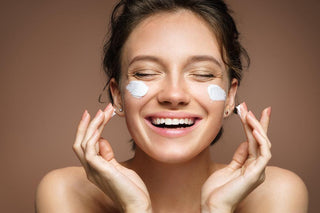Is It Too Late to Start Using Anti-Aging Serums? The Best Age to Begin
December 27, 2024

The idea of aging gracefully is a concern many of us face as we look in the mirror and notice fine lines or skin starting to lose its youthful glow. Anti-aging serums are often touted as the magic bullet to reduce wrinkles, restore skin elasticity, and promote a youthful complexion. But the question arises: is it too late to start using these products, especially if you’re already over a certain age? And what’s the best age to begin using anti-aging serums?
Let’s dive into this topic and find out when you should start incorporating anti-aging serums into your skincare routine and how they can benefit you at any age.
Is It Too Late to Start Using Anti-Aging Serums?
The short answer is: No, it’s never too late. It’s never too late to start using anti-aging serums, no matter your age. The skin’s ability to repair itself and benefit from active ingredients in these serums remains, even as you age.
While prevention is always better than treatment, starting an anti-aging regimen later in life can still offer significant benefits. The key is to choose the right serum based on your age, skin type, and concerns.
The Best Age to Begin Using Anti-Aging Serums
The ideal time to start using anti-aging serums can vary depending on your skin’s needs, lifestyle, and genetics. However, dermatologists suggest a few general guidelines for when to incorporate anti-aging products into your routine.
In Your 20s: Start Early to Prevent Early Signs of Aging
Your 20s are typically a time when your skin is still youthful, firm, and full of collagen. However, environmental factors like sun exposure, pollution, and stress can already begin to affect your skin. In your late 20s, you may notice slight signs of aging, such as fine lines around the eyes or mouth, or duller skin.
This is the perfect time to start using preventive anti-aging serums that focus on protecting the skin from damage. Look for serums that contain antioxidants like vitamin C, niacinamide, or green tea extract. These ingredients help protect against free radicals, promote cell turnover, and brighten the complexion.
In Your 30s: Fine Lines and Early Signs of Wrinkles
By the time you reach your 30s, you might notice the first true signs of aging. Fine lines may appear around your eyes, forehead, or mouth, and the skin may begin to lose some of its natural elasticity. This is when you want to introduce more targeted anti-aging serums.
Retinol, peptides, and hyaluronic acid are excellent ingredients to incorporate into your regimen during this decade. Retinol (or retinoids) helps stimulate collagen production, which can reduce the appearance of fine lines and wrinkles. Hyaluronic acid, on the other hand, plumps the skin, giving it a smoother, more youthful appearance.
In Your 40s: Deeper Wrinkles and Loss of Firmness
As you enter your 40s, the signs of aging may become more pronounced. Wrinkles deepen, and skin may lose some of its firmness and elasticity. Collagen production decreases significantly around this time, leading to sagging skin and more visible lines.
To combat these effects, your serum should focus on boosting collagen and firming the skin. Look for serums containing ingredients like peptides, growth factors, or retinol. These can help stimulate collagen production and improve skin texture.
In Your 50s and Beyond: Mature Skin Needs Intensive Repair
Once you reach your 50s, skin becomes thinner and more delicate. You might notice more pronounced wrinkles, age spots, and dryness. At this stage, anti-aging serums should focus on intense hydration, skin regeneration, and skin barrier repair.
Hydrating ingredients like hyaluronic acid, along with potent antioxidants like vitamin C and E, will nourish the skin and help reduce the visible signs of aging. Retinol is still beneficial, but be mindful of its strength and potential irritation in mature skin.
No Matter Your Age, Here’s How to Maximize the Benefits of Anti-Aging Serums
- Consistency is Key: Anti-aging serums work best when used consistently. Apply them daily (or as directed by your product) to achieve the best results.
- Layering: Apply your serum after cleansing and toning, but before moisturizing. This ensures your skin absorbs the active ingredients.
- Sun Protection: Always use sunscreen during the day, especially if you’re using retinol or other exfoliating ingredients. Sun exposure accelerates the aging process and can undo the benefits of your anti-aging products.
- Listen to Your Skin: As you age, your skin’s needs may change. Pay attention to how your skin reacts to different products, and adjust your routine accordingly.
Conclusion
It’s never too late to start using anti-aging serums. Whether you're in your 20s or beyond, incorporating these serums into your routine can help preserve and restore youthful-looking skin. The earlier you start, the more you can prevent future damage, but starting later can still offer noticeable improvements in your skin’s appearance and texture. Choose serums that fit your specific age, skin concerns, and goals, and commit to a consistent skincare routine for the best results.

